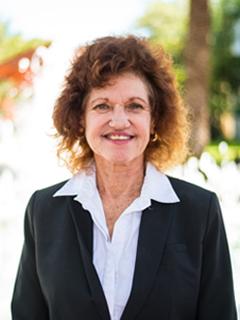Many years ago, tennis legend Roger Federer gave a news conference in the wee hours of the morning after playing a brutal five-hour Grand Slam match. Having to play again the next day, I wondered if, at some point the Association of Tennis Professionals would consider the possibility of tabling post-match conference interviews following extended matches. They did not.

Fast forward to 2021, tennis phenom Naomi Osaka elected not to give a news conference after the early rounds of her tennis match at the French Open. Osaka is the No. 2 player in women’s tennis and in 2020 was the highest paid female athlete. When she is on her game, many consider her unbeatable—having already won four Grand Slams and defeating many legendary tennis players, including Serena Williams. However, Osaka, 23, indicated that after her first Grand Slam win in New York, she developed bouts of depression and found it difficult to be tossed into the limelight and put on display.
This talented young player found herself in a very precarious position. She had to weigh her contractual obligations to the Women’s Tennis Association (WTA) and her adoring fans against her mental health and well-being. Rather than give a news conference, she chose to step away from the tournament—certainly an agonizing decision for someone whose life is centered on tennis. One could argue that Osaka has made a fortune from the marketing of her name and fame, which has brought her to the forefront of women’s tennis, and she owes her fans some face time. However, Osaka made it clear when rendering her difficult decision that she has been battling with the distress of her enormous popularity and her media obligations after each match.
From the WTA’s perspective, tennis is a business. And Osaka signed a contract that she clearly broke and had to pay a fine. One can also understand how important it is for the WTA to showcase their tennis stars to their fans and increase the marketability of the sport. If all the tennis players decided not to provide post-match interviews, it would not bode well. In hindsight, perhaps Osaka should have communicated her feelings to the WTA earlier and reached out for help.
However, it’s troubling that this gifted, young athlete found it so difficult to give a post-match interview that she walked away from the game she loves. I want to make it perfectly clear that I am not a mental health expert. I am a tennis player, a tennis fan, a former collegiate athlete, and an exercise physiologist. I’ve had the pleasure of testing many of the top tennis players in my laboratory at the University of Miami and have gotten to know several players on a personal level. This gives me insight into how brutal this sport can be. Tennis is like playing a physical chess match, moving your body around the court, often hours at a time, in response to your opponent’s moves. At the end of a match, one is as mentally drained as they are physically taxed.
Between traveling restrictions, quarantining, and difficulty practicing and training, the COVID-19 era has certainly been a tough one for athletes who have had to play this out on the world’s stage. Maybe it’s time for the organizations to work with the players individually and come up with a compromise that reduces the number of post-match interviews, especially during the early rounds. The goal, here, is to check the level of physical and mental stress and promote overall well-being.
Arlette Perry is professor and chair of the Department of Kinesiology and Sport Sciences in the University of Miami School of Education and Human Development.

